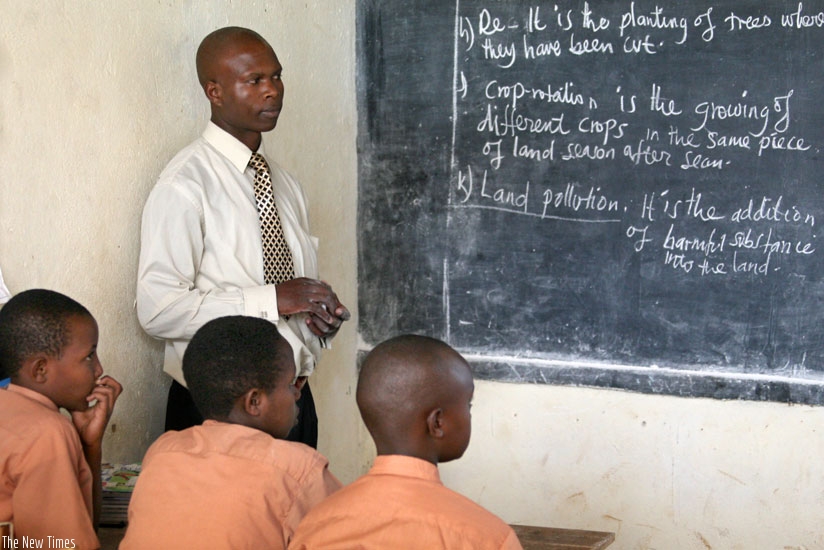Our teachers deserve better
Editor,
Reference is made to your Editorial, “Teacher motivation: The private sector too can chip in” (The New Times, April 16).

A teacher conducts a lesson recently. (File)
